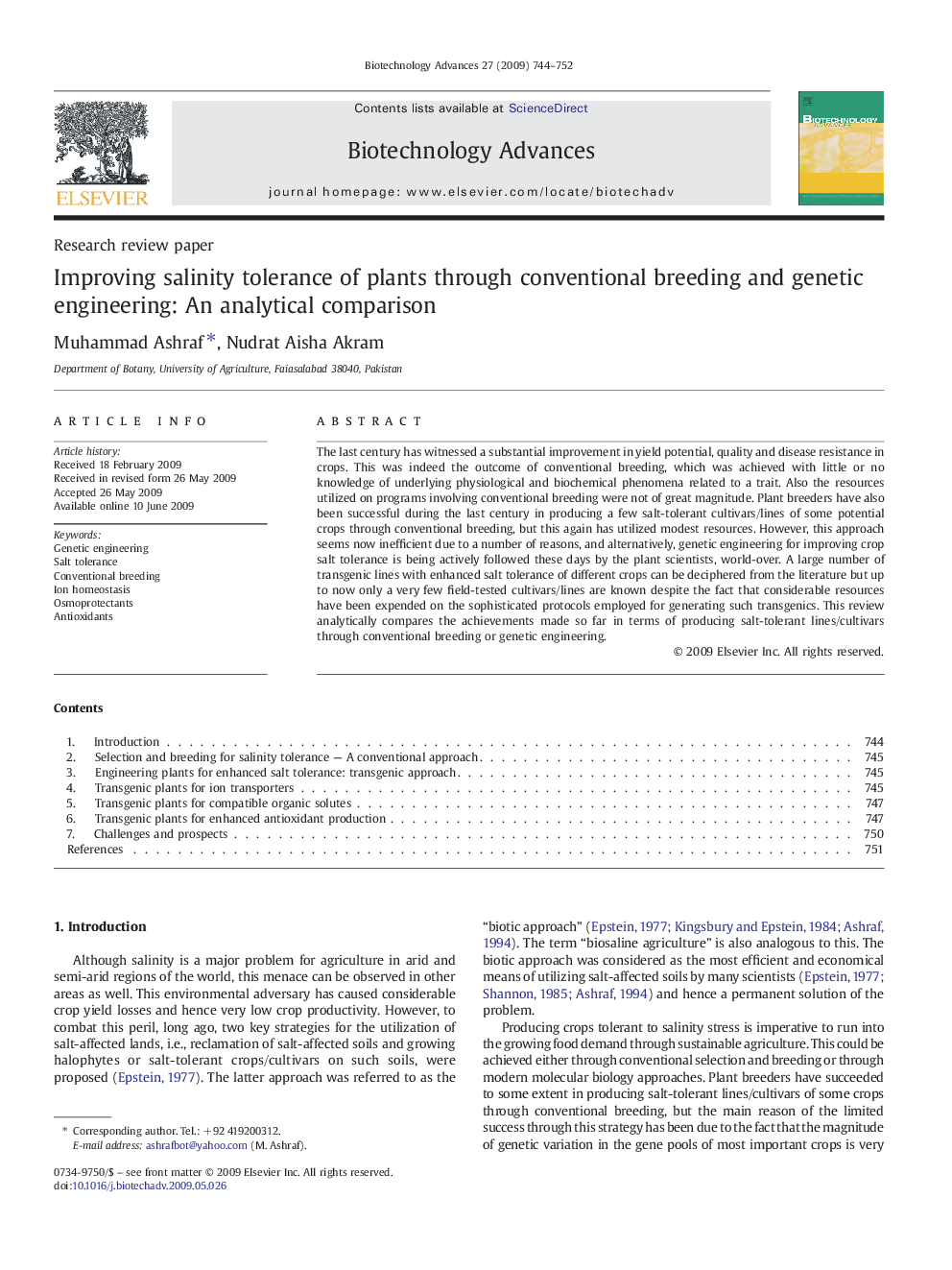| Article ID | Journal | Published Year | Pages | File Type |
|---|---|---|---|---|
| 14649 | Biotechnology Advances | 2009 | 9 Pages |
The last century has witnessed a substantial improvement in yield potential, quality and disease resistance in crops. This was indeed the outcome of conventional breeding, which was achieved with little or no knowledge of underlying physiological and biochemical phenomena related to a trait. Also the resources utilized on programs involving conventional breeding were not of great magnitude. Plant breeders have also been successful during the last century in producing a few salt-tolerant cultivars/lines of some potential crops through conventional breeding, but this again has utilized modest resources. However, this approach seems now inefficient due to a number of reasons, and alternatively, genetic engineering for improving crop salt tolerance is being actively followed these days by the plant scientists, world-over. A large number of transgenic lines with enhanced salt tolerance of different crops can be deciphered from the literature but up to now only a very few field-tested cultivars/lines are known despite the fact that considerable resources have been expended on the sophisticated protocols employed for generating such transgenics. This review analytically compares the achievements made so far in terms of producing salt-tolerant lines/cultivars through conventional breeding or genetic engineering.
